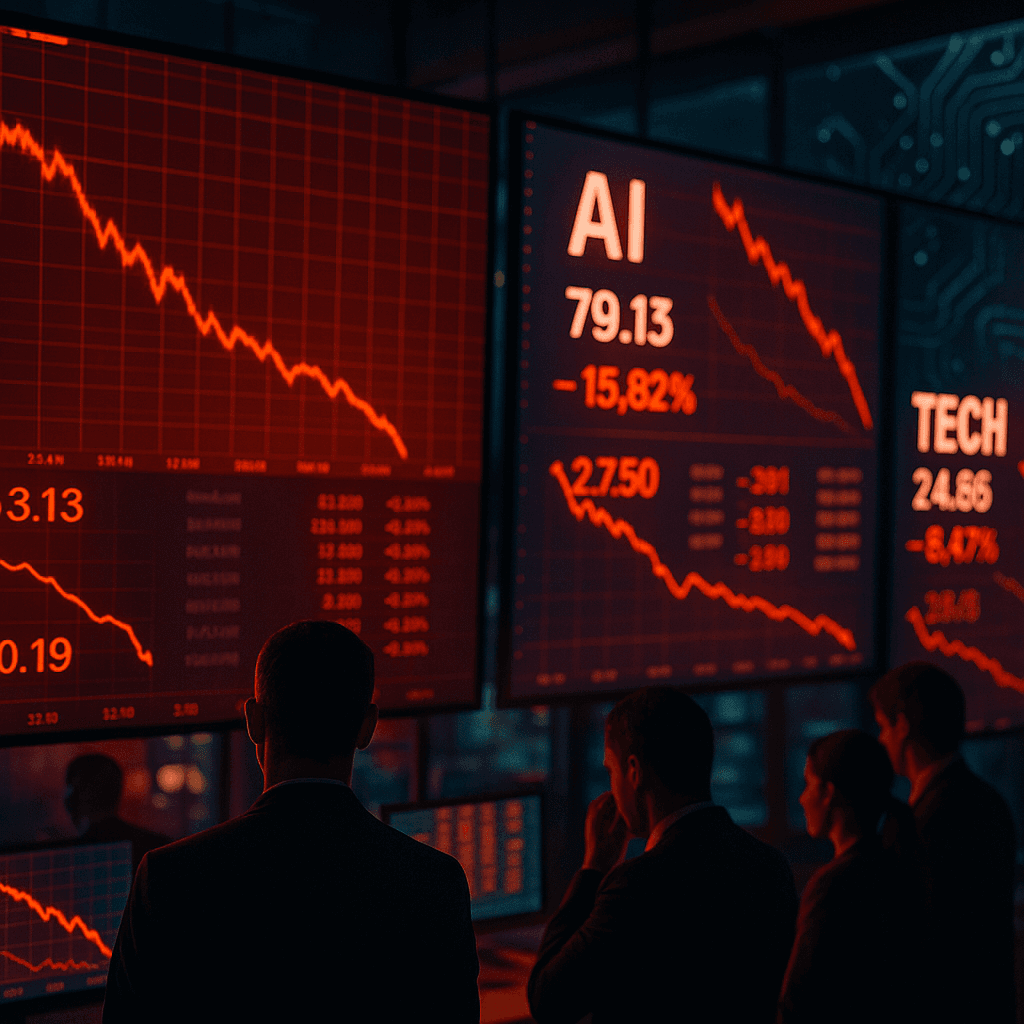Markets are crashing worldwide as investors finally question whether the AI boom has gotten too hot. Global stocks tumbled Tuesday with tech leading the decline, all eyes now on Nvidia earnings Wednesday to see if the AI gold rush can justify sky-high valuations or if reality is setting in.
The AI party just hit a wall. Global markets are selling off hard Tuesday as investors finally ask the uncomfortable question: are we in an artificial intelligence bubble that's about to burst?
Nvidia stock led the tech rout, falling alongside Amazon, Microsoft, and Palantir as investors brace for the chip giant's earnings Wednesday. Europe's Stoxx 600 Technology Index shed 1.5%, following Wall Street's lead after all three major U.S. indexes closed in the red Monday.
The carnage spread across Asia-Pacific markets, with Japan and South Korea posting notable declines. It's the kind of coordinated global selloff that makes traders nervous - and for good reason.
"This is natural profit taking following a strong market run since April," Mike Gallagher, director of research at Continuum Economics, told CNBC. But he warns equities could fall "about 5% from recent highs - or a bit more."
The timing isn't coincidental. All eyes are on Nvidia Wednesday after the market closes, when the company reports third-quarter earnings. As the primary supplier of GPUs powering the AI revolution, Nvidia has become the ultimate bellwether for whether this boom is sustainable or headed for a spectacular crash.
But here's what's really spooking investors: the funding reality check. Remember all those massive AI announcements from this summer? The billion-dollar commitments to data centers, GPUs, and computing power? Well, someone has to actually pay for all that.
"The market is starting to realize that this is going to maybe be a slower process than they thought in the summer," Yuri Khodjamirian, Chief Investment Officer at Tema ETF, explained to CNBC. He points to OpenAI's "massive announcements of commitments to spending on GPUs, power data centers" as examples of promises that need actual funding.
That's where things get interesting. Major tech companies are quietly turning to debt markets to fund their AI ambitions. Amazon just completed its first bond sale in three years, according to Bloomberg. Meta and Google have also tapped credit markets as AI spending spirals.
